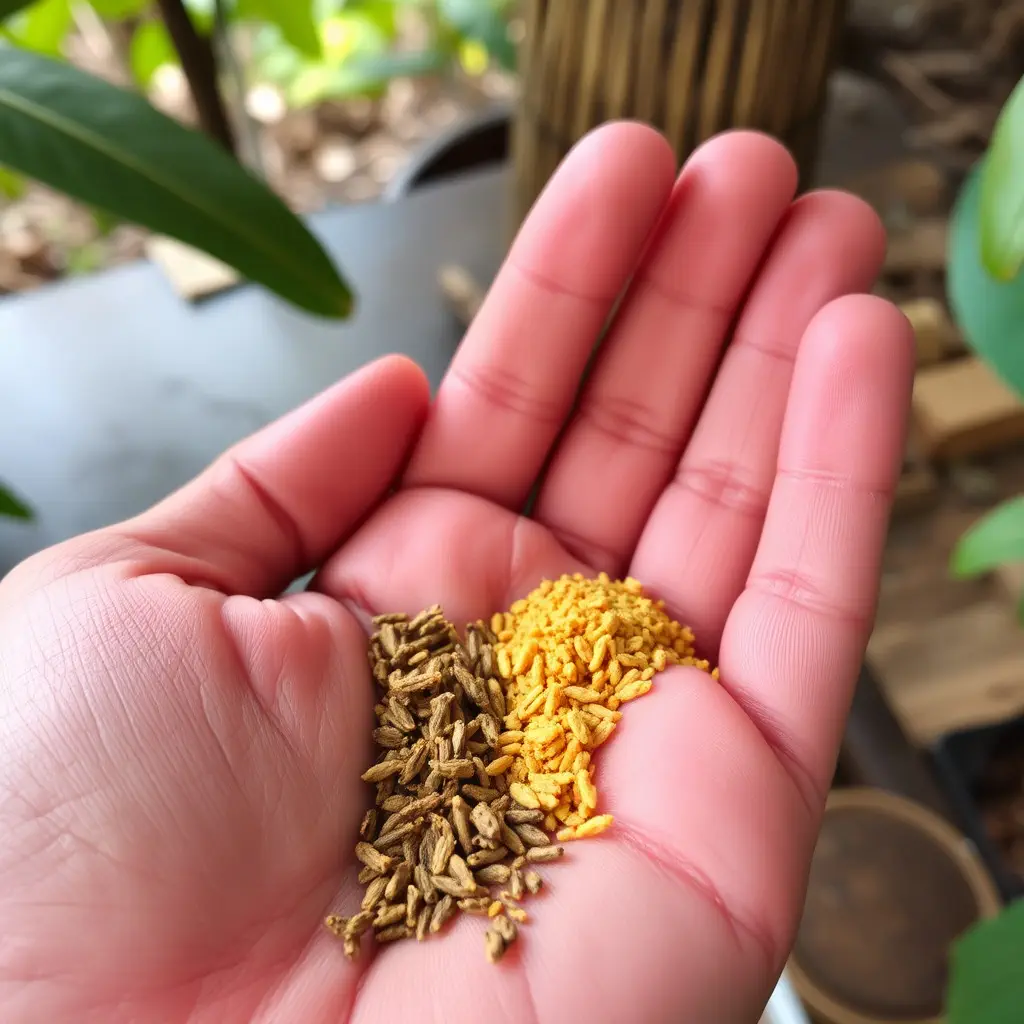Kratom, a plant from Southeast Asia with potential performance-enhancing properties, is often used by high achievers to cultivate mental toughness, which includes aspects like confidence and resilience. It may improve focus and motivation, particularly during intense physical activities. However, it's crucial to consider the substance's impact on liver health, as there are concerns about its long-term effects, specifically its potential to affect liver enzymes. Research indicates that regular monitoring of liver function is necessary when using kratom due to these hepatic risks. The active compounds in kratom, like mitragynine and 7-hydroxymitragynine, can offer benefits for mental resilience but must be used responsibly to avoid negative health outcomes. To safely incorporate kratom into a training regimen, it's essential to follow medical guidance, adhere to safe dosage practices, and engage in a balanced diet and regular exercise to support liver health. This approach ensures that individuals can pursue mental toughness without compromising their liver well-being or overall health. Is Kratom hard on the liver? The evidence suggests caution is warranted, and proactive health management is key for those considering its use as part of their training strategy.
Embarking on a journey to fortify one’s mental toughness can be an arduous endeavor, often requiring innovative strategies and robust support systems. Kratom training emerges as a multifaceted approach, blending the traditional practices of Mitragyna speciosa with rigorous mental conditioning. This article delves into the intricacies of mental fortitude and how kratom can be strategically incorporated into training regimens to bolster focus and endurance. While kratom’s impact on liver health is a point of contention—with concerns about its potential harshness on the organ—a balanced perspective that addresses these health considerations is crucial for safe and effective use. By exploring the symbiotic relationship between mental resilience training and kratom usage, readers will gain valuable insights into cultivating inner strength while mindfully navigating the associated health implications.
- Understanding Mental Toughness and Kratom Training: A Comprehensive Guide to Psychological Resilience and Mitragyna Speciosa Usage
- Cultivating Inner Strength: Integrating Kratom into Your Training Regimen for Enhanced Focus and Endurance
- Addressing Health Concerns: Mental Toughness Strategies in Harmony with Liver Health Considerations and Kratom Use
Understanding Mental Toughness and Kratom Training: A Comprehensive Guide to Psychological Resilience and Mitragyna Speciosa Usage

Mental toughness, a psychological quality often associated with elite athletes and high-performing individuals, refers to the capacity to consistently perform towards the highest level possible, regardless of the challenges faced. It encompasses several components, including confidence, resilience, dedication, commitment, attention control, and cognitive and emotional preparation. In the context of Kratom training, mental toughness plays a crucial role in maintaining focus and motivation during physically demanding activities. Kratom (Mitragyna speciosa), a plant native to Southeast Asia, has garnered attention for its potential impact on physical endurance and psychological well-being. Proponents suggest that Kratom can enhance mental resilience by moderating mood and alleviating fatigue, which are beneficial for rigorous training regimens. However, it’s important to approach the use of Kratom with caution due to its complex interactions with the body. A primary concern regarding Kratom is its effect on liver health; specifically, questions arise about whether long-term use is hard on the liver. Research indicates that Kratom can cause liver enzyme elevations in some individuals, which warrants careful consideration and monitoring if integrating it into a training program. Users are advised to consult healthcare professionals and consider regular liver function tests as part of their health regimen when incorporating Kratom into their fitness routines. By understanding the intricacies of mental toughness and the potential effects of Kratom, individuals can better navigate its use for enhanced performance while safeguarding their overall well-being.
Cultivating Inner Strength: Integrating Kratom into Your Training Regimen for Enhanced Focus and Endurance

Integrating kratom into a training regimen can be a nuanced approach that requires careful consideration of its potential impact on the body, particularly concerning liver health. Some individuals may express concerns about the safety of kratom due to its effects on the liver; specifically, questions arise regarding whether it is kratom hard on the liver over extended periods of use. It’s crucial to approach this integration with an informed perspective, acknowledging that kratom contains alkaloids which can influence metabolic processes and may affect liver function. To mitigate any potential adverse effects, responsible dosing and maintaining a vigilant monitoring of one’s health are essential. Users should adhere to recommended guidelines and consult healthcare professionals before incorporating kratom into their training routines.
When used judiciously as part of a broader mental toughness strategy, kratom can potentially enhance focus and endurance during workouts. Its alkaloids, mitragynine and 7-hydroxymitragynine, are known for their stimulating and analgesic properties, which can aid in pushing through physical and mental barriers. For those looking to cultivate inner strength and resilience, the integration of kratom should be a complementary element alongside proper training, nutrition, and recovery practices. It’s important to maintain a balanced approach that emphasizes overall well-being and avoids overreliance on any single substance for performance enhancement. By doing so, athletes and fitness enthusiasts can leverage kratom’s benefits while minimizing potential risks associated with its use.
Addressing Health Concerns: Mental Toughness Strategies in Harmony with Liver Health Considerations and Kratom Use

Engaging in mental toughness training, especially when incorporating substances like kratom, necessitates a careful approach to health, particularly liver health. Kratom, derived from the Mitragyna speciosa tree, has gained attention for its potential impact on mental resilience and focus. However, concerns about its effects on liver function are prevalent, as questions like “is kratom hard on the liver?” often arise. To mitigate these risks, it’s crucial to adopt strategies that support liver health while pursuing mental toughness. Regular monitoring of liver enzymes through blood tests can serve as an early warning system, allowing for adjustments in kratom usage if necessary. Additionally, maintaining a balanced diet rich in antioxidants and engaging in detoxifying activities like exercise can aid the liver’s detoxification processes. It’s also advisable to adhere to dosage guidelines and to avoid combining kratom with other hepatotoxic substances. By integrating these health considerations into a regimen of mental toughness strategies, individuals can work towards achieving their goals without compromising their liver health. This harmonious approach ensures that the benefits of mental training are sustained in the long term, with a focus on overall well-being.
In conclusion, mental toughness is a critical aspect of training, and integrating kratom into one’s regimen can offer significant benefits for focus and endurance. However, it is imperative to approach its use with caution, particularly concerning liver health. This guide has illuminated the multifaceted nature of mental resilience and the potential role of kratom (Mitragyna speciosa) in enhancing one’s psychological fortitude. While kratom may be a potent tool for athletes seeking to bolster their performance, it is crucial to balance its use with careful health considerations to mitigate any adverse effects, as queries about ‘is kratom hard on the liver’ are common. By understanding both the advantages and the limitations of kratom, individuals can adopt a sustainable training approach that respects their overall well-being while fostering the mental toughness necessary for peak performance.






